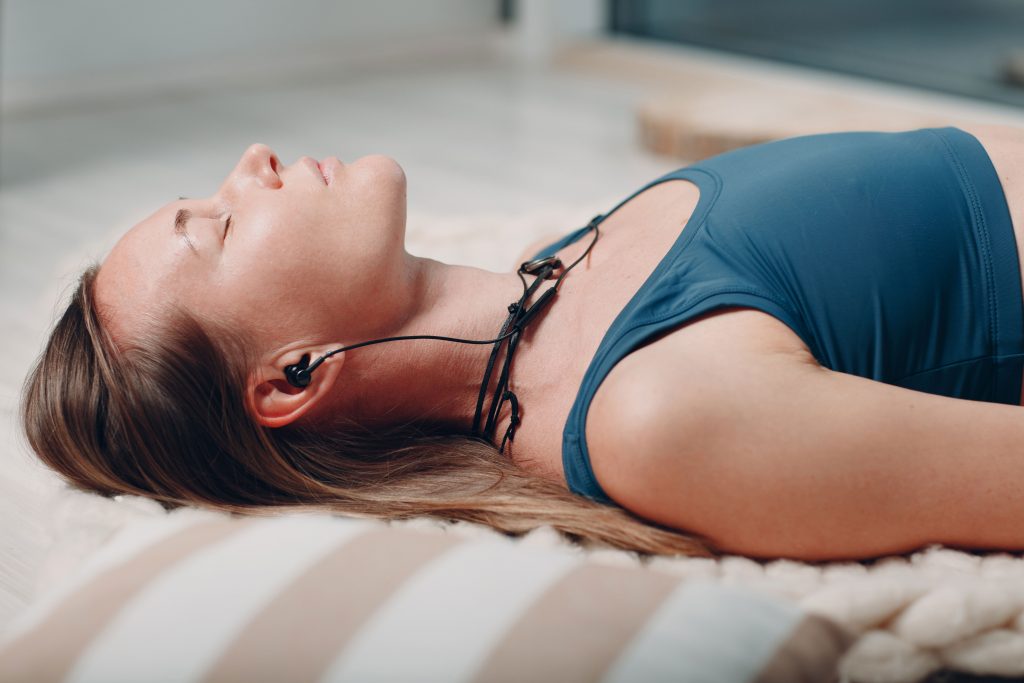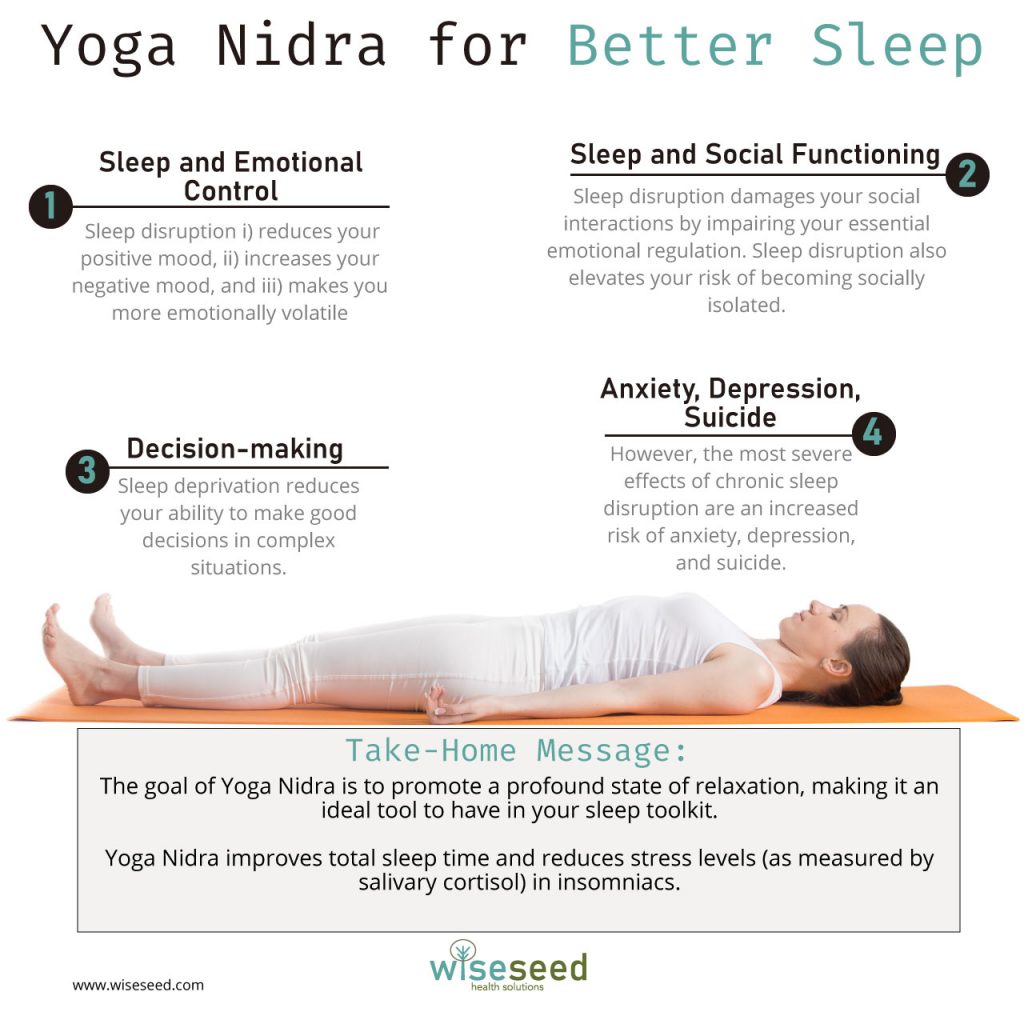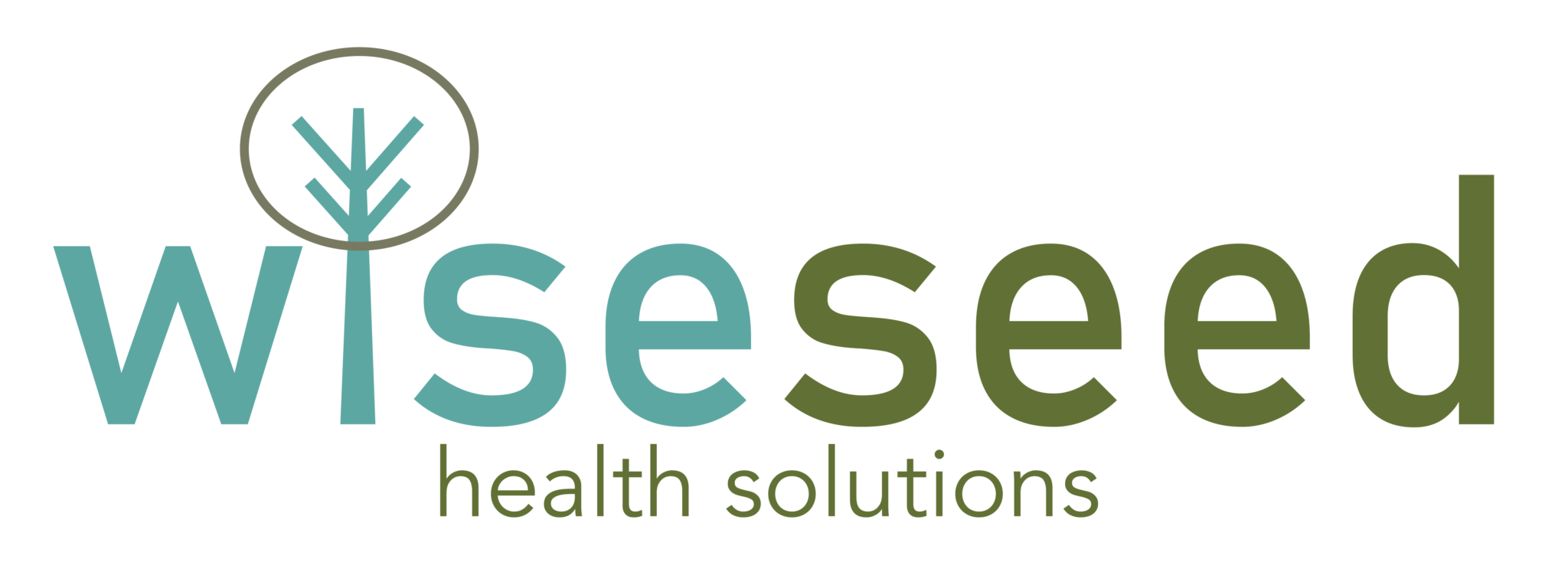Yoga Nidra for Better Sleep

Unfortunately, I am a bit of a stress head.
Sadly, the observation that humanity seems to be rushing headlong into a dystopian hell-scape isn’t helping reduce my stress—quite the contrary!
One unwelcome side effect of chronic stress is sleep disruption.
Therefore, to help get my insomnia under control, I’ve begun researching safe and proven methods to improve the quality of my sleep.
- What is sleep disruption?
- Sleep and Emotional Control
- Sleep and Social Functioning
- Complex Decision Making
- Sleep, Depression, and Suicide
- Yoga: A Safe, Simple, and Effective Approach For Better Sleep
- Consider Yoga Nidra
- Where to learn Yoga Nidra
- Take-Home Message
- References and Further Reading
- Acknowledgements
What is sleep disruption?
There are several forms of sleep disruption (1).
The first is sleep restriction, which means getting too little sleep by staying up late or waking up too early (or both!) (1).
However, you may also experience stress-induced insomnia in the form of
i) not being able to fall asleep,
ii) waking up during the night, or
iii) experiencing a disturbed sleep cycle, for example, not getting sufficient deep sleep each night (1).
Unfortunately, all forms of sleep disruption negatively impact your cognition and emotional stability.
Sleep and Emotional Control
Sleep disruption reduces your emotional control in three ways (1).
1. Emotional Reactivity
Emotional reactivity encompasses rapid changes in your physiology, subjective experience, and resulting behavior in response to an emotional challenge (1).
For example, think of getting frustrated, embarrassed, or finding something hilariously funny.
Typically, sleep disruption
i) reduces your positive mood,
ii) increases your negative mood, and
iii) makes you more emotionally volatile (1).
Thus, sleep disruption makes you depressed or sad while simultaneously making you more reactive to emotional triggers:
Not a great combination.
2. Emotional Evaluation
In addition to increasing your emotional reactivity, sleep disruption impairs your ability to accurately evaluate other people’s emotional states (1).
Further, your reduced capacity to assess emotional intent in others forces you to discount positive stimuli while focusing your attention on negative inputs (1).
Thus, sleep disruption encourages a negative emotional bias, pushing you to interpret your day-to-day interactions in a more negative light.
3. Emotional Expression
Disrupted sleep paradoxically dampens your ability to express emotion despite increasing your emotional reactivity (1).
For example, sleep disruption reduces your ability to express emotions through your face and voice. (1)
Furthermore, sleep disruption significantly reduces your use of positive words (1).
In short, sleep disruption robs you of your natural charisma.
Sleep and Social Functioning
Sleep disruption also damages your social interactions by impairing your essential emotional function and regulation (1).
1. Personal Relationships
Because sleep disruption impairs your ability to interpret other people’s emotional states, you are more inclined to express aggression when interacting with friends and loved ones (1).
In addition, you are more likely to experience dissatisfaction in romantic relationships when deprived of sleep (1).
2. Workplace Relationships
The adverse effects of sleep disruption are particularly pernicious in the workplace.
For the employee, sleep disruption predicts lower job satisfaction levels and reduces your willingness to help your colleagues (1).
In addition, you are more likely to express greater overall hostility, ethically mistreat your co-workers, and suffer reduced charisma (1).
The harmful effects of sleep disruption are even more damaging if you are the boss or supervisor.
For example, sleep-deprived supervisors are more likely to employ abusive management strategies (1).

Furthermore, employees supervised by a sleep-deprived boss become disengaged from their work and alienated from their boss (1).
Worst of all, the under-slept are generally unaware that their behavior is abnormal and harming their work environment (1).
Hence, the likelihood of course-correcting and repairing damaged relationships is low.
3. Social Isolation
Sleep disruption also elevates your risk of becoming socially isolated.
For example, being sleep-deprived lowers your desire to interact with others, makes you more hostile, and increases your desire to be alone (1).
Moreover, the isolating effects of sleep disruption cut both ways, as people instinctively avoid people who are sleep deprived (1).
Complex Decision Making
Sleep deprivation reduces your ability to make good decisions in complex situations (1), which won’t surprise anyone who has sat an exam after pulling an all-nighter!
Lack of sleep undermines your confidence in real-world situations, encouraging you to become overly reliant on other people to make decisions (1).
Sleep disruption also erodes your judgment, skewing you towards making impulsive decisions that you later regret (1).
For example, it’s well known that the sleep-deprived becomes more focused on short-term gains, such as binge-eating junk food when tired.
Sleep, Depression, and Suicide
However, the most severe effects of chronic sleep disruption are increased anxiety and depression.
Unfortunately, approximately 65% of depressed people experience difficulties falling asleep, staying asleep, and waking up too early (2).
The question naturally arises whether sleep disruption contributes to depression or vice versa.
Although depression undoubtedly increases sleep disruption, people who experience disrupted sleep due to either insomnia or sleep apnea have a twofold greater risk of developing depression (3, 4).
Thus, chronic sleep disruption markedly increases your risk of depression.
Of particular concern is the significant link between sleep disruption and suicide.
For example, a recent large-scale analysis showed that sleep disruption is associated with a 1.95 to 2.95-fold increased risk of suicide, suicide ideation, and attempted suicide (5).
Moreover, the contributing role of sleep disruption in suicide holds across age groups, ranging from adolescents to older adults (6-8).
Thus, chronic sleep disruption may have severe long-term consequences on your mental health.
Yoga: A Safe, Simple, and Effective Approach For Better Sleep
Clearly, sleep disruption is bad for your mental and emotional health.
However, the good news is that increasing your sleep quality can improve your mental health!
For example, increasing sleep time reduces depression and anxiety while improving emotional control in children, adolescents, and healthy adults (9-11).
Further, improving sleep using cognitive behavioral therapy for insomnia (CBT-I) decreases anxiety and depression (12).
The burning question is, how do you safely improve your sleep?
Consider Yoga Nidra
Fortunately, there is a simple, accessible, free, and (most importantly) safe approach that many people have found highly beneficial in overcoming insomnia: Yoga Nidra.
Yoga Nidra combines guided mental imagery with a specific yoga posture called Shavasana (or “corpse pose”) (13).
The guided nature of the meditation combined with the Shavasana pose means that you can NSR to enter a state of deep relaxation in bed just before you sleep or wake up at night (13).
Perfect!
The goal of Yoga Nidra is to promote a profound state of relaxation, making it an ideal tool to have in your sleep toolkit (13).
Crucially, studies are now beginning to show the beneficial effects of Yoga Nidra on improving sleep and decreasing anxiety.
For example, a recent pilot study used a brief Yoga Nidra intervention to reduce negative moods and improve positive moods in a cohort with a high proportion (80%) of people experiencing insomnia (14).
Furthermore, a second clinical trial showed that Yoga Nidra improved total sleep time and reduced stress levels (as measured by salivary cortisol) in insomniacs (15).
The most important consideration is that Yoga Nidra is entirely safe, with no negative side effects.
Where to learn Yoga Nidra
A fantastic way to learn Yoga Nidra is under the tutelage of Yogi Ally Boothroyd at Sarovara Yoga and Yogi Rosalie at Rosalie Yoga.
Ally and Rosalie have created a series of amazing instructional Yoga Nidra videos that are free for you to download and use.
In addition, their guided meditations range from three minutes to one hour, meaning that you can easily select a meditation time that best suits your needs.
For example:
I start with a 10-minute guided meditation immediately before sleep.
I keep the 3-minute meditation ready for when I wake up at 1 am and need to switch off my brain ASAP.
Like any skill, it may take some time before you become competent at this form of meditation, especially if (like me) you’re new to yoga or mindfulness.
However, a few weeks of practice is a small price to pay for improving your sleep quality and mental health.
Take-Home Message
We live in a stressful world, with all indicators pointing towards life becoming even more stressful.
One consequence of chronic stress is sleep disruption, which increases anxiety, depression, and suicide risk.
Fortunately, Yoga Nidra is a simple and safe method that has helped many people overcome sleep disruption, which is why I’ve incorporated Yoga Nidra into my sleep toolkit.

References and Further Reading
1. E. Ben Simon, R. Vallat, C. M. Barnes, M. P. Walker, Sleep Loss and the Socio-Emotional Brain. Trends Cogn Sci 24, 435-450 (2020).
2. M. J. Peterson, R. M. Benca, Sleep in mood disorders. Psychiatr Clin North Am 29, 1009-1032; abstract ix (2006).
3. C. Baglioni et al., Insomnia as a predictor of depression: a meta-analytic evaluation of longitudinal epidemiological studies. J Affect Disord 135, 10-19 (2011).
4. Y. H. Chen, J. K. Keller, J. H. Kang, H. J. Hsieh, H. C. Lin, Obstructive sleep apnea and the subsequent risk of depressive disorder: a population-based follow-up study. J Clin Sleep Med 9, 417-423 (2013).
5. W. R. Pigeon, M. Pinquart, K. Conner, Meta-analysis of sleep disturbance and suicidal thoughts and behaviors. J Clin Psychiatry 73, e1160-1167 (2012).
6. A. Winsler, A. Deutsch, R. D. Vorona, P. A. Payne, M. Szklo-Coxe, Sleepless in Fairfax: the difference one more hour of sleep can make for teen hopelessness, suicidal ideation, and substance use. J Youth Adolesc 44, 362-378 (2015).
7. J. Lee, J. Kang, S. Rhie, K.-Y. CHAE, Impact of sleep duration on emotional status in adolescents. Journal of the Korean Child Neurology Society, 100-110 (2013).
8. D. B. Kay et al., Insomnia is associated with suicide attempt in middle-aged and older adults with depression. International psychogeriatrics 28, 613-619 (2016).
9. R. Gruber, J. Cassoff, S. Frenette, S. Wiebe, J. Carrier, Impact of sleep extension and restriction on children’s emotional lability and impulsivity. Pediatrics 130, e1155-e1161 (2012).
10. J. F. Dewald‐Kaufmann, F. Oort, A. Meijer, The effects of sleep extension and sleep hygiene advice on sleep and depressive symptoms in adolescents: a randomized controlled trial. Journal of Child Psychology and Psychiatry 55, 273-283 (2014).
11. Y. Motomura et al., Recovery from unrecognized sleep loss accumulated in daily life improved mood regulation via prefrontal suppression of amygdala activity. Frontiers in Neurology 8, 306 (2017).
12. Y.-y. Ye et al., Internet-based cognitive behavioral therapy for insomnia (ICBT-i) improves comorbid anxiety and depression—a meta-analysis of randomized controlled trials. PLoS One 10, e0142258 (2015).
13. S. R. Pandi-Perumal et al., The Origin and Clinical Relevance of Yoga Nidra. Sleep and Vigilance, 1-24 (2022).
14. E. Sharpe, D. Tibbitts, B. Wolfe, A. Senders, R. Bradley, Qualitative Impressions of a Yoga Nidra Practice for Insomnia: An Exploratory Mixed-Methods Design. J Altern Complement Med 27, 884-892 (2021).
15. K. Datta, M. Tripathi, M. Verma, D. Masiwal, H. N. Mallick, Yoga nidra practice shows improvement in sleep in patients with chronic insomnia: A randomized controlled trial. Natl Med J India 34, 143-150 (2021).
Acknowledgements
Images created by fizkes and primipil.
Disclaimer
The material displayed on this website is provided without any guarantees, conditions or warranties as to its accuracy.
Information written and expressed on this website is for education purposes and interest only. It is not intended to replace advice from your medical or healthcare professional.
You are encouraged to make your own health care choices based on your own research and in conjunction with your qualified practitioner.
The information provided on this website is not intended to provide a diagnosis, treatment or cure for any diseases. You should seek medical attention before undertaking any diet, exercise, other health program or other procedure described on this website. To the fullest extent permitted by law we hereby expressly exclude all warranties and other terms which might otherwise be implied by statute, common law or the law of equity and must not be liable for any damages whatsoever, including but without limitation to any direct, indirect, special, consequential, punitive or incidental damages, or damages for loss of use, profits, data or other intangibles, damage to goodwill or reputation, injury or death, or the cost of procurement of substitute goods and services, arising out of or related to the use, inability to use, performance or failures of this website or any linked sites and any materials or information posted on those sites, irrespective of whether such damages were foreseeable or arise in contract, tort, equity, restitution, by statute, at common law or otherwise.

Ten Minutes is All You Need
Research has shown that ten minutes of moderate-to-vigorous exercise performed each day is enough to significantly reduce your risk of early death.

Three Strategies to Mitigate Cognitive Decline
There exist highly effective compensation strategies that can help you mitigate, and in many cases overcome, your cognitive limitations.




